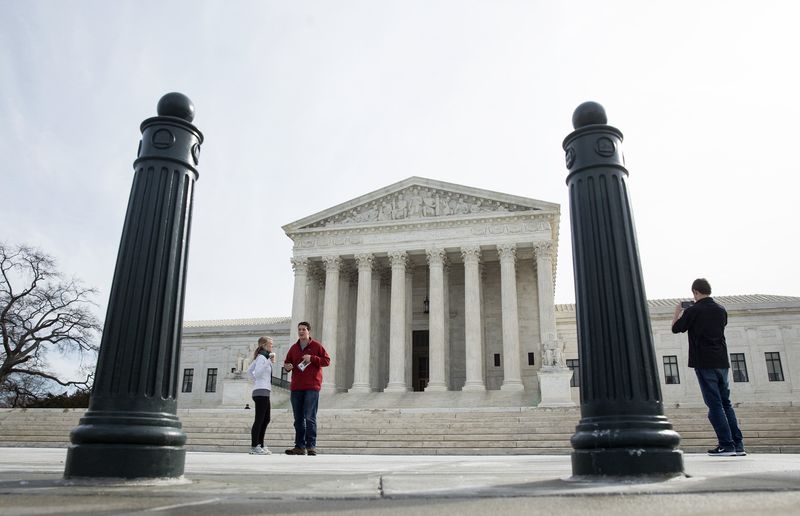By Lawrence Hurley
WASHINGTON (Reuters) - The U.S. Supreme Court on Monday revived the University of Notre Dame's religious objections to the requirement for contraception coverage under President Barack Obama's healthcare law, throwing out a lower court decision in favor of the federal government.
The justices asked the 7th U.S. Circuit Court of Appeals to reconsider its decision against the South Bend, Indiana-based Roman Catholic university in light of the June 2014 Supreme Court ruling that allowed certain privately owned corporations to seek exemptions from the provision.
The case is part of national litigation concerning religious objections to the contraception provision of the 2010 Affordable Care Act, known widely as Obamacare.
The law requires employers to provide health insurance policies that cover preventive services for women including access to contraception and sterilization.
Various challengers, including family-owned companies and religious affiliated nonprofits that oppose abortion and sometimes the use of contraceptives, say the requirement infringes on their religious beliefs.
Mark Rienzi, a lawyer with the religious rights group Becket Fund for Religious Liberty who has been involved in similar cases, said Monday's action was "a strong signal that the Supreme Court will ultimately reject the government's narrow view of religious liberty."
The court threw out a February 2014 appeals court ruling denying Notre Dame an injunction against the requirement.
The appeals court ruling pre-dated the Supreme Court's June 2014 ruling saying family-owned Hobby Lobby Stores Ltd could seek exemptions on religious grounds from the contraception provision.
Days later, in a case similar to the Notre Dame dispute, the justices allowed an Illinois college a temporary exemption while litigation continues.
Last August, the government amended its compromise plan for nonprofits with religious affiliations, meaning the legal landscape has changed substantially since the appeals court ruled against Notre Dame.
Courts that have ruled on the issue since the Supreme Court decision have all decided in favor of the government, finding the compromise does not impose a substantial burden on the plaintiffs' religious beliefs. Religious rights are protected under a law called the Religious Freedom Restoration Act.
The compromise allows the groups to certify they are opting out, which then forces insurers to pick up the tab.
Notre Dame says the certification process still essentially forces the groups to authorize the coverage for employees even if they are not technically paying for it. Religious institutions are exempt from the contraception coverage requirement.

The case is Notre Dame v. Burwell, U.S. Supreme Court, No. 14-392.